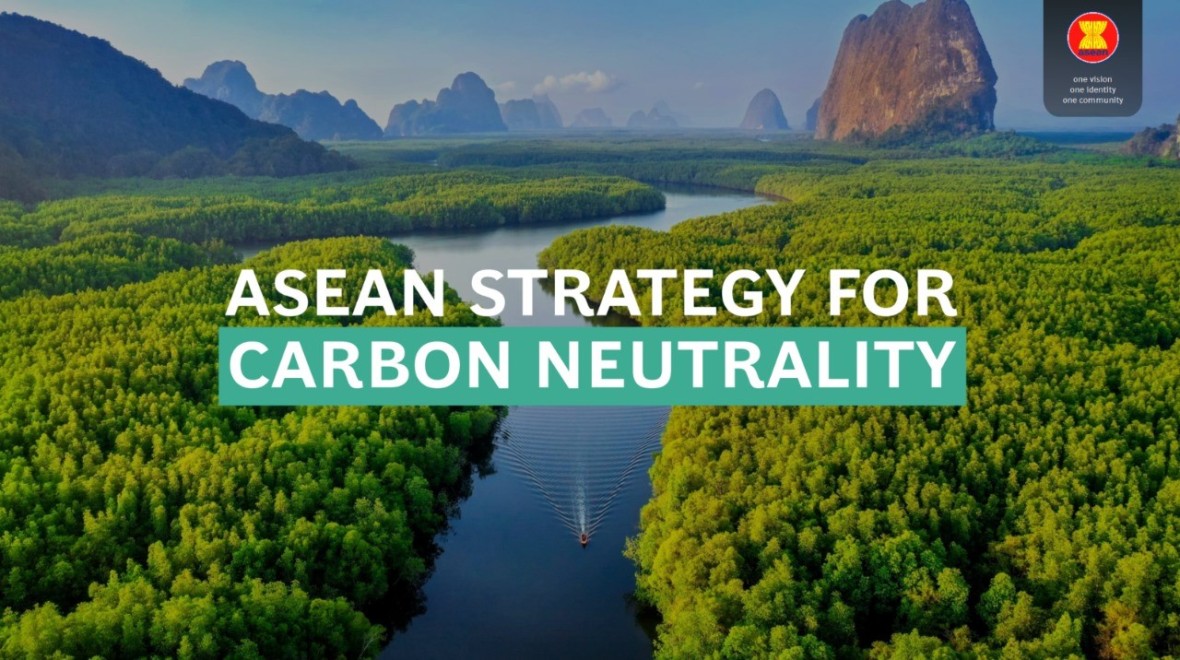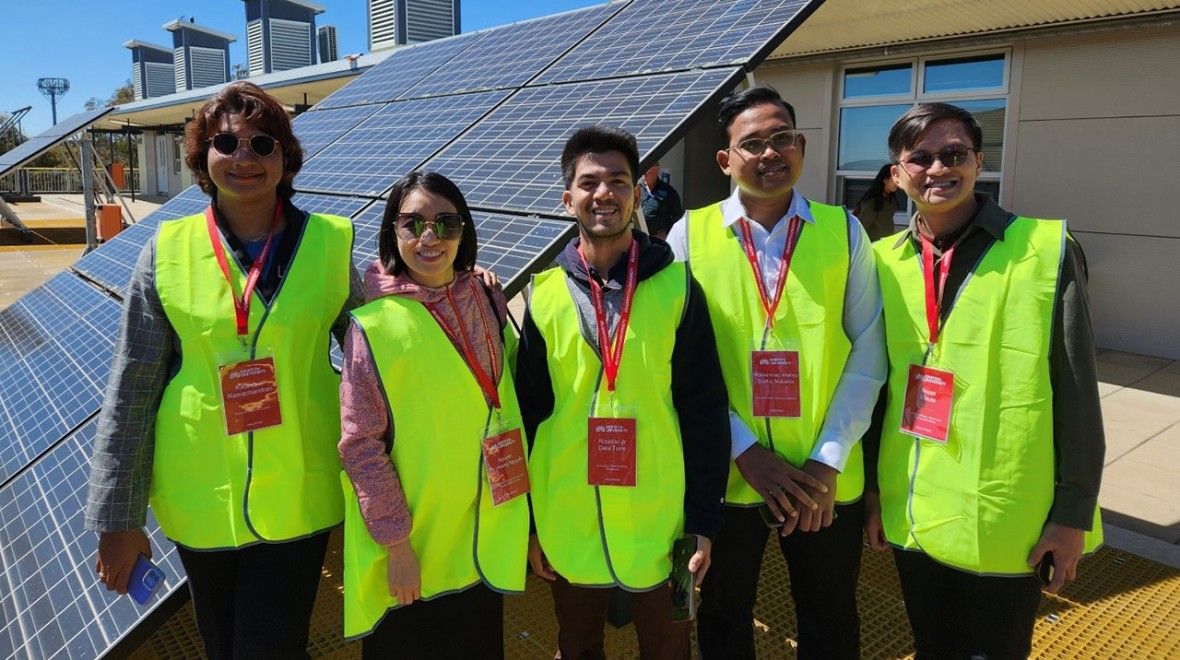Climate and Clean Energy
The Climate and Clean Energy Track will bring together regional stakeholders to focus on practical actions and cooperation to support an accelerated clean energy transition. It will also share experiences on meeting the region's priorities.
The Track aims to boost collaboration and investment in the region’s clean energy transition to address the shared challenges we face.
The objectives of the program reflect the shared focus of ASEAN and the Australian Government to decarbonise our economies and work with other countries in the region to upscale global action against climate change.
Key themes and activities
The Climate and Clean Energy Transition Forum
- Delegates will hear from ASEAN and Australian representatives from governments, academia, think tanks, civil society and the private sector.
- Key themes will include boosting clean energy trade across our region, and financing and investment opportunities for Southeast Asia and Australia to support the clean energy transition and meet climate objectives.
- Bringing together regional stakeholders for keynote addresses and panel discussions, the Forum will promote the exchange of ideas and consider opportunities to further the energy transition across our region in a just and inclusive manner. It will build on discussions at the High-Level Dialogue on Climate Change and Energy Transition, held in Hanoi on 29 September 2023.
- The Forum will promote the discussion of regional energy security, power trading and integration arrangements, and increased uptake and development of clean energy technologies.
The Marketplace
In parallel to the Forum, delegates are invited to attend the Special Summit Marketplace that will highlight two-way trade and investment opportunities through a series of exhibitors.
Fast Facts
- Southeast Asia needs an estimated 454GW in additional generation capacity between 2021 and 2050, with around 60% of this in renewables. Energy use in Southeast Asia is expected to double by 2050. (2)
- ASEAN’s energy transition to a carbon neutral future could drive between US$3 and US$5.3 trillion GDP value-add by 2050, unlocking between 49 and 66 million additional jobs for the ASEAN region. (3)
- Clean energy transition in Southeast Asia could create US$1 trillion in annual green economic opportunities by 2030. (4)
- Southeast Asia will require an additional 5.5 million trained workers in the renewables sector alone by 2050 to meet future green economy workforce needs. (5)
(1) Source: ASEAN Centre for Energy (ACE), The 7th ASEAN Energy Outlook 2020–2050, ACE, 2022, p. 86, The 7th ASEAN Energy Outlook - ASEAN Centre for Energy (2) Source: Moore, Nicholas, Department of Foreign Affairs and Trade (DFAT), The Commonwealth of Australia’s Invested: Australia’s Southeast Asia Economic Strategy to 2040, DFAT, 2023, p. 61, https://www.dfat.gov.au/sites/default/files/invested-southeast-asia-economic-strategy-2040.pdf. (3) source: Association of Southeast Asian Nations, ASEAN Economic Integration Brief Number 14, ASEAN, December 2023, p. 2, AEIB_No.14_DRAFT-v3-28Dec2023.pdf (asean.org). (4) Source: Bain and Temasek, with contributions from Microsoft, Southeast Asia’s Green Economy 2022 Report: Investing behind new realities, 2022, p. 9, https://www.bain.com/globalassets/noindex/2022/bain-temasek-sea-greeneconomy-2022-report investing-behind-the-new-realities.pdf. (5) Source: ASEAN Centre for Energy (ACE), The 7th ASEAN Energy Outlook 2020–2050, ACE, 2022, p. 99, https://aseanenergy.org/the-7th-asean-energy-outlook/.
Case Studies

Aus4ASEAN Futures Initiative –Support for the ASEAN Strategy for Carbon Neutrality
This strategy, commissioned by ASEAN and with funding support from the Australian Government through the Australia for ASEAN (Aus4ASEAN) Futures initiative, outlines a coordinated regional roadmap and tangible initiatives to accelerate ASEAN’s inclusive and just transition to a green economy.
It seeks to drive sustainable growth and development, preserve trade competitiveness, and unlock economic, environmental and social benefits.
ASEAN is acutely exposed to climate change. Unchecked climate change could drive down regional GDP by 11% by the end of the century, and lead to displacement of 87 million people in high-risk flood areas in Indonesia, Malaysia, Myanmar, Thailand and Vietnam.

Partnerships for Infrastructure (P4I)
The P4I facility supported 28 partner agencies across eight Southeast Asian countries and ASEAN with technical assistance to help them address their substantial infrastructure investment needs.
P4I is supporting CSIRO to share Australia’s energy transition expertise in support of Southeast Asia’s energy transition through a wide range of initiatives. This includes support for the ASEAN Centre for Energy to develop the ASEAN Long Term Renewable Energy Roadmap. CSIRO has also established an MoU with the Electricity Generating Authority of Thailand (EGAT) for cooperation on energy storage and clean hydrogen.
The partnership extends to practical cooperation, with CSIRO hosting a workshop with Indonesia’s main electricity utility, Perusahaan Listrik Negara (PLN), focused on accelerating the uptake of renewable energy, with a similar workshop planned with Vietnam’s National Local Dispatch Centre.
|
Download Climate and Clean Energy fact sheet
PDF
1.99 MB
|